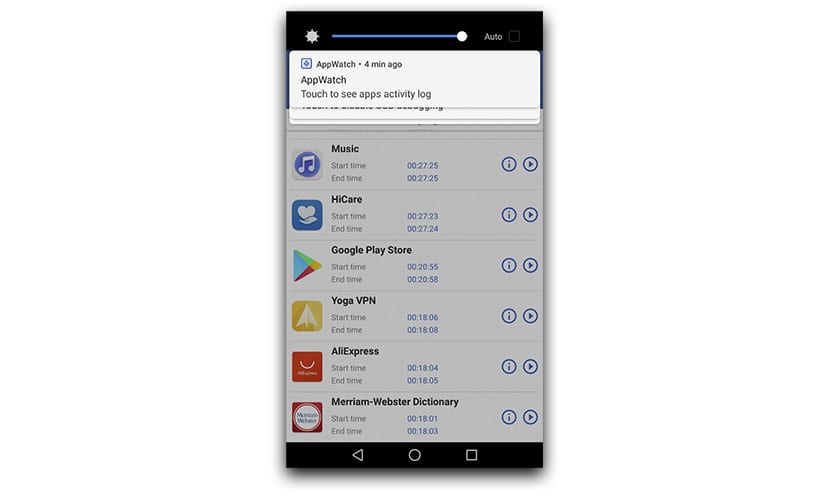
There are millions of apps in the Google Play Store and it is difficult to know which are the apps that they are launching advertising and spam at all hours on our mobile. Surely you know a colleague who has installed X app from the Play Store and that damn advertising begins to appear.
Well today we are going to teach you how to identify which are the apps that launch this advertising popup randomly. An unpleasant experience that we can have even if we use the safest app store.
The app to detect other apps
To be able to undertake the task of detecting which are the apps that are infesting our phone with that pop-up advertising, we are going to install the app called AppWatch and that we have for free from the Google Play Store.

We notify you in advance that AppWatch has advertising within the app. But as its developer says, it is the only way to keep developing and work on it to continue improving it; It is perfectly understood, although it may sound curious that an app that eliminates advertising pop-ups also carries advertising.
Be that as it may, hopefully soon launch a premium version for an app which is worth its weight in gold to warn us that such an app is making fraudulent use of the security system of your smartphone. Surely you will be surprised by the apps that in the background cause that pop-up advertising and that achieve a very bad user experience.
Its basic characteristics

AppWatch is characterized by monitoring to other apps and is based on:
- Monitoring of the apps that are active.
- It helps to detect which is the app which displays pop-up ads on screen.
- Record the execution time of each application.
- It allows quick access to the activity log from the notification bar itself.
Not only is he dedicated to monitoring, but as you can see, he also provides other information that can help us to investigate how our system works. Although we remain with its main mission, and that is none other than to detect which are the apps that send pop-up advertising without us being able to do anything about it; at least until now ...
How to use AppWatch to detect which apps are sending pop-up ads
In order for AppWatch to do its job, we have to follow these steps:
- We install AppWatch first from the Play Store:
- We launched AppWatch and click on the switch that we find on the home screen.
- So monitoring is activated so that AppWatch looks for that app that makes a fraudulent use of the system.
- We left the app and started using our mobile as if nothing was happening.
- In that right moment when an ad appears pop-up on the screen, we have to open AppWatch from the notification bar.
- It is when we will find the activity log with the last app started and that is the one that is showing those annoying ads at all times in a random way.
- Let's go to Settings> Apps and we uninstall the app which is causing all the problems.
AppWatch does a great job and we recommend that you leave it installed if you usually get new apps that are not well known. In this way you will know at all times that you must install it and that you will have to look for an alternative.
We recommend that you pass by the security section on our page to find help and warnings about possible apps that can create real problems on our mobile. One of them is security software that surely has little.
So you know how to detect apps that send intrusive advertising randomly in the form of pop-ups or pop-up ads. A whole free app that you have in Spanish. Go for her if you have this tedious problem; that does have publicity, although not intrusive.
